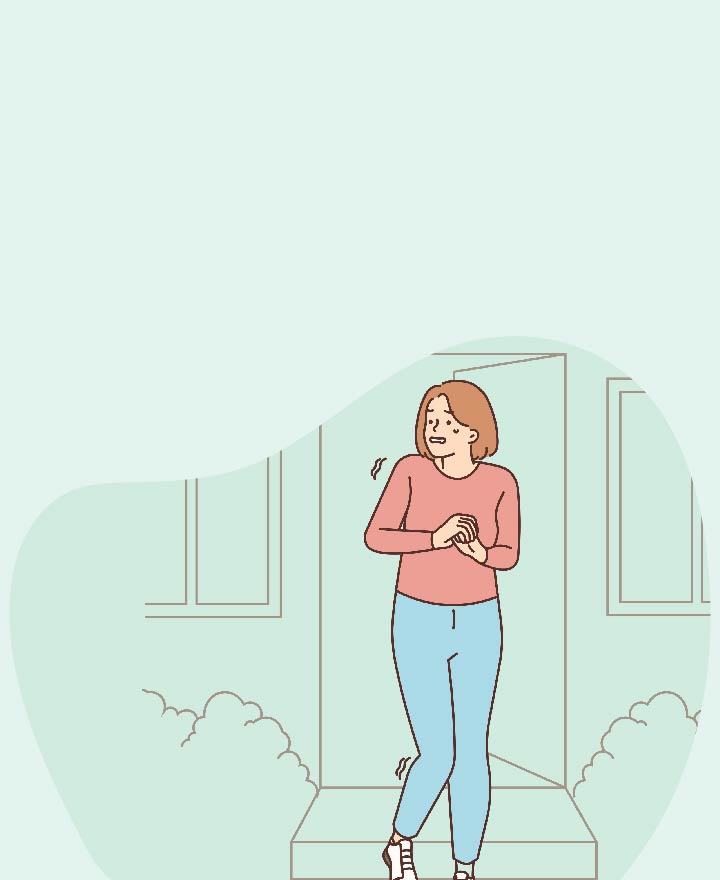

What is a Phobia?
A phobia is an excessive and irrational fear reaction. The word itself comes from the Greek word "phobos," which means "fear" or "horror." The term ‘phobia' is often used to refer to a fear of one particular trigger. Unlike general anxiety disorders, a phobia is usually connected to something specific. It could be an object, situation, or activity. Most importantly, you can't control that fear. It could be scary to the extent that you would do anything to avoid it or stay away from it. Knowing about this condition can help you tackle it more effectively.
Any phobia is generally categorised as a type of anxiety disorder. Phobia typically remains dormant until one encounter the object of his/her fear. However, in certain instances, mere contemplation of phobia's source can trigger anticipatory anxiety. Anticipatory anxiety results in feelings of restlessness, dizziness, nausea, excessive sweating, a heightened heart rate, breathlessness, trembling, and gastrointestinal discomfort.
The impact of phobia on one's daily life often depends on how frequently the person encounters the phobic trigger. Phobias appear to be multifactorial in origin, lacking a singular cause. They may be linked to specific traumatic experiences, learned behaviours from family members during childhood, or genetic predispositions.
Symptoms
Most phobias have these characteristics:
• A feeling of helplessness in the face of one's fears
• Feeling that whatever is causing you anxiety must be averted by all means
• Unable to perform typically when challenged by the trigger
• Recognition of the irrationality, unreasonableness, and exaggeration of the terror, along with helplessness in the face of such emotions
Conclusion
Phobias are intense and uncontrollable fears of specific objects, situations, or activities. They often have deep-rooted evolutionary or traumatic origins, affecting people's daily lives and decision-making. Recognising what does phobia mean and the symptoms associated is crucial. If you think you may have a phobia that's causing a disruption in your life, don't fear seeking help from a medical professional.
One of the important components of our overall wellness is also being financially secured. Healthcare emergencies can happen any time, but a good health insurance policy can protect you from such uncertain situations. To know more about Wellness and other health related tips, visit the wellness corner .
Source: verywellmind, baptisthealth, healthline, medicalnewstoday, verywellhealth
Disclaimer: This blog provides general information and discussions about health and related subjects. The information and other content provided in this blog, website or any linked materials are not intended and should not be considered or used as a substitute for medical advice, diagnosis or treatment. Kindly contact your doctor before starting a new medicine or health regime.
Related Articles
Social Anxiety Disorder - Symptoms And Treatment
Illness Anxiety Disorder & Its Classification
Social Anxiety - Do's and Don'ts
Types of Social Anxiety Disorder and Their Impact
Exploring Different Types of Anxiety Disorders
Published on November 21, 2023














 Health Insurance
Health Insurance  Travel Insurance
Travel Insurance  Car Insurance
Car Insurance  Cyber Insurance
Cyber Insurance  Critical Illness Insurance
Critical Illness Insurance
 Pet Insurance
Pet Insurance
 Bike/Two Wheeler Insurance
Bike/Two Wheeler Insurance  Home Insurance
Home Insurance  Third Party Vehicle Ins.
Third Party Vehicle Ins.  Tractor Insurance
Tractor Insurance  Goods Carrying Vehicle Ins.
Goods Carrying Vehicle Ins.  Passenger Carrying Vehicle Ins.
Passenger Carrying Vehicle Ins.  Compulsory Personal Accident Insurance
Compulsory Personal Accident Insurance  Travel Insurance
Travel Insurance  Rural
Rural